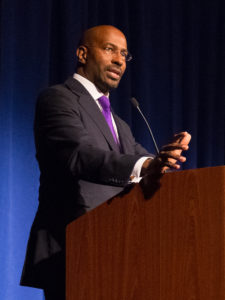A Message to the Haters
One of my marketing buddies, Marisa Murgatroyd, posted a picture of Greta Thunberg along with an inspirational message about how Greta’s work empowered Marisa to find her own place to make change.

It attracted a lot of comments, many of them expressing thanks for a great post–but others, far too many, dissing Greta and her work. Here’s my comment, in italics.
Thanks, Marisa, for posting this. Shocking how many people are posting to tear this young woman down because she’s changing the world. She will probably grow out of her extremism but if the world is lucky, she will keep her passion. I ask every person who is putting Greta down: what have you done in HER lifetime to make the world better, and what are you doing now toward that goal? Why is it important to you to spend your good energy attacking someone who is making a difference in the only ways she knows how?
And before you attack ME for using the word, “extremism,” remember this:
- This was a response to people who see her as an extremist. I used their own talking point to perhaps be listened to–to increase the chances that I might change a mind or two.
- Greta is acting out of deep despair. She does sound extreme at times. But let’s remember how hard it is to act out of despair, even if you don’t have Asperger’s (as she does). Positive motivators tend to work much better. To act from a dark place in a positive way is itself remarkable. In time, she will learn (as I did) that the world can be a very positive place, and we get the fun job of making it more positive, harnessing and amplifying the trends in the good directions, doing our best to neutralize the haters and the planet-killers. And that while the pace may seem glacial, we are actually winning.







